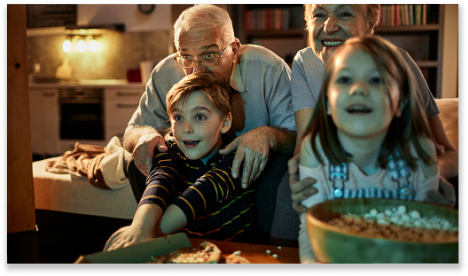Pediatric Audiology Services

Pediatric hearing testing is crucial to your child’s development
Our ability to communicate and learn are tied to our senses. Even small changes in our ability to hear can affect the way in which our brain develops. Over time, untreated hearing loss can have an affect on our social and emotional well-being.
According to ASHA, untreated hearing loss in children can lead to:
- Learning difficulties
- Social isolation
- Fatigue
- Hyperactivity
- Depression
- Aggression
- Behavioral issues
It’s recommended that newborns get screened for hearing loss before they leave the hospital. In addition, parents should watch for signs of hearing loss and get their children screened at least once a year.
Babies who can hear will:
- Startle to sounds
- Turn toward sounds (at 6 months or older)
- Respond to hearing their name
- Begin to mimic words and sounds
Even children who pass their newborn screening and show signs of hearing may lose hearing from repeated ear infections, loud noises, or through an injury. This is why annual pediatric hearing tests are so important.
Over time, untreated hearing loss can start to impact their ability to socialize and hear at school.
Older children experiencing hearing loss may:
- Learn to speak later than their peers
- Fail to enunciate their words clearly
- Turn up the volume on devices or the television
- Request that you repeat instructions
- Misunderstand speakers frequently
If your child is showing any of these signs, call us for a pediatric hearing screening. Call now.

Specialized Hearing Tests for Children
Visual Reinforcement Audiometry (VRA)
This hearing test evaluates both ears at the same time and is often used for children who are too young for normal pure-tone hearing tests (6 months to two years old). It uses more comfortable headphones (instead of a headset) or a surround-sound system and trains children to look toward sounds using visual reinforcement.
Conditioned Play Audiometry (CPA)
Children often don’t want to sit for a full hearing test. CPA turns the hearing test into something more playful, allowing children to do something fun whenever they hear a sound.